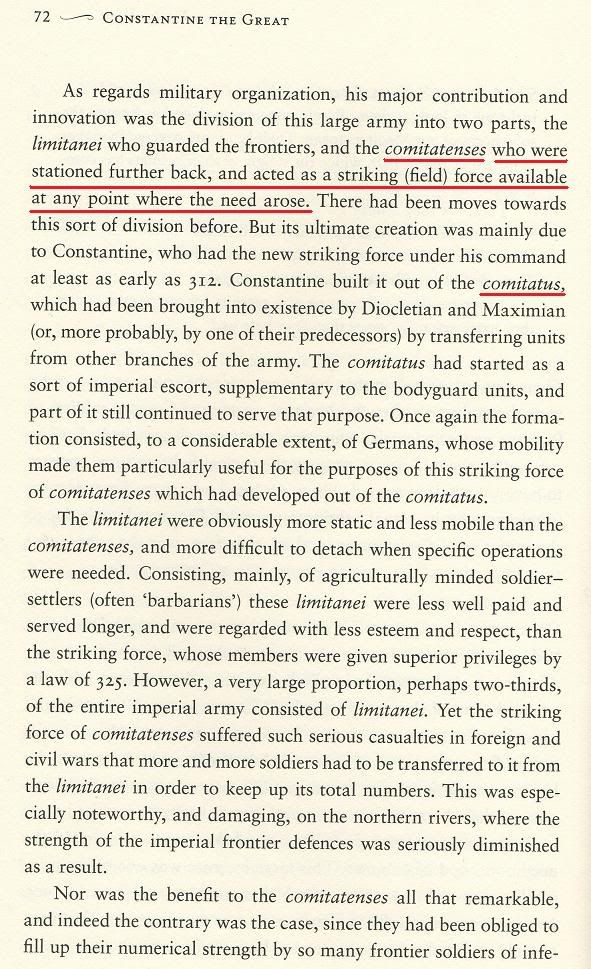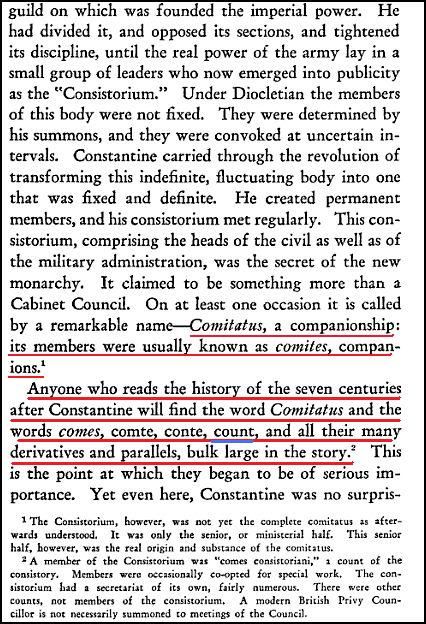According to wikipedia (yes I know it's unreliable, hence why I am questioning it) the word Komitadji (Comitadji) http://en.wiktionary.org/wiki/comitadji Etymology
From various Balkan languages, all from Turkish komitacı,[1], from komita (from French comité (“‘committee’”)) + -cı. and the source is supposedly Webster's Third New International Dictionary, Unabridged. Merriam-Webster. 2002.
But then I run into this from Michael Grant's book Constantine the Great

and found another wiki article on the word Comitatenses http://en.wikipedia.org/wiki/Comitatenses
I think that the etymology of Komitadji should be in dispute.
From various Balkan languages, all from Turkish komitacı,[1], from komita (from French comité (“‘committee’”)) + -cı. and the source is supposedly Webster's Third New International Dictionary, Unabridged. Merriam-Webster. 2002.
But then I run into this from Michael Grant's book Constantine the Great

and found another wiki article on the word Comitatenses http://en.wikipedia.org/wiki/Comitatenses
I think that the etymology of Komitadji should be in dispute.



Comment